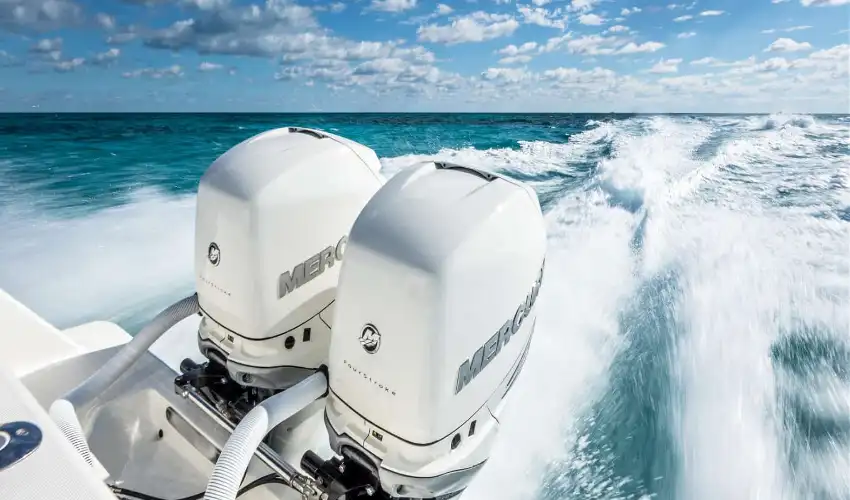The boating industry is undergoing a significant transformation, and electric outboard motors are at the forefront of this change. As environmental concerns, technological advancements, and shifting consumer preferences reshape the market, many experts and boaters alike are asking: Are electric outboard motors the future of boating? In this article, we explore the benefits, challenges, and future potential of electric outboard motors and why they might soon become the preferred choice for boating enthusiasts worldwide.
The Rise of Electric Outboard Motors
Electric outboard motors have steadily gained popularity in recent years due to their eco-friendly features and growing performance capabilities. Unlike traditional gasoline-powered motors, electric outboards produce zero emissions, helping reduce the boating industry’s environmental impact. This aspect is increasingly important as governments worldwide impose stricter regulations on emissions and water pollution, pushing manufacturers and boat owners to explore cleaner alternatives.
Additionally, electric outboards are quieter, offering a more peaceful boating experience. This reduction in noise pollution benefits both boaters and marine wildlife, making electric motors ideal for fishing, wildlife tours, and serene recreational outings.
Environmental Benefits and Sustainability
One of the strongest selling points for electric outboard motor is their environmental friendliness. Gasoline engines emit greenhouse gases and release fuel residues into the water, harming aquatic ecosystems. In contrast, electric motors run on batteries, which can be charged using renewable energy sources like solar or wind power, further minimizing the carbon footprint.
Moreover, the elimination of fuel spills and exhaust fumes helps maintain water quality and protect marine habitats. As climate change concerns become more urgent, sustainable boating practices, including the adoption of electric propulsion, are expected to rise sharply.
Advancements in Battery Technology
A key factor driving the feasibility of electric outboard motors is the rapid advancement in battery technology. Modern lithium-ion batteries offer longer ranges, faster charging times, and lighter weights compared to earlier battery models. These improvements address past concerns about electric motor performance and range limitations.
Many electric outboard motors today can power small to medium-sized boats for several hours on a single charge, sufficient for day trips and leisure activities. Ongoing innovations promise even greater efficiency and range, potentially expanding electric outboards’ suitability for larger vessels and longer journeys.
Cost Considerations: Upfront vs. Long-Term Savings
While electric outboard motors often have a higher initial purchase price than traditional gas-powered engines, they offer significant long-term savings. Electric motors require less maintenance, as they have fewer moving parts and don’t need oil changes, fuel filters, or spark plugs. This can substantially reduce upkeep costs and downtime.
Additionally, charging an electric motor is generally cheaper than refueling with gasoline, especially if the electricity comes from renewable sources or off-peak grid hours. Boaters who use their vessels frequently stand to benefit from these cost savings over time.
Performance and Usability
Electric outboard motors are no longer just an eco-friendly novelty; they now offer competitive performance. Many models deliver instant torque, smooth acceleration, and reliable operation comparable to gas engines. The quiet operation also enhances onboard comfort.
Furthermore, electric motors simplify boat operation with features like push-button start and variable speed control, making them accessible for beginners and experienced boaters alike. Their lightweight design also contributes to improved boat handling and fuel efficiency.
Challenges and Limitations
Despite their growing appeal, electric outboard motors still face some challenges. Battery life and range limitations remain concerns for users planning extended trips or high-speed boating. Although battery technology continues to improve, electric motors generally don’t yet match the range and power output of high-performance gasoline engines.
Charging infrastructure can also be a limiting factor. While some marinas now offer charging stations, many do not, requiring boaters to plan charging carefully or invest in portable charging solutions. This is particularly relevant for boaters who spend time on remote waters or longer voyages.
Market Trends and Industry Adoption
The boating industry is responding quickly to the rise of electric propulsion. Major manufacturers are expanding their electric outboard motor lines, and new startups are introducing innovative designs. Government incentives and subsidies for clean energy products further accelerate adoption.
In addition, more boat rental and tour companies are switching to electric motors to meet eco-conscious customer demand. This shift indicates a broader trend toward sustainability within recreational boating.
Are Electric Outboard Motors the Future?
Considering the environmental benefits, improving technology, and shifting market trends, electric outboard motors are poised to play a major role in the future of boating. While they may not yet fully replace gasoline engines in every scenario, they offer an attractive alternative for many boaters.
As battery technology advances and charging infrastructure expands, electric outboards will likely become more practical and affordable for a wider range of users. The push for greener, quieter, and more efficient boating aligns perfectly with electric motor capabilities.
For eco-conscious boaters, families, and commercial operators, electric outboard motors represent a smart investment in sustainability without sacrificing performance or enjoyment.
Conclusion
Electric outboard motors are more than just a passing trend—they are a promising solution for sustainable boating. Their combination of environmental friendliness, reduced noise pollution, cost savings, and improved performance positions them as a leading choice in the evolving boating landscape. While challenges remain, ongoing advancements suggest a bright future where electric propulsion becomes the norm on lakes, rivers, and coastal waters worldwide.
If you’re considering an upgrade or entering the boating world, exploring electric outboard motors could be a forward-thinking decision. The future of boating is electric, and embracing this technology will help protect the waters we cherish for generations to come.

